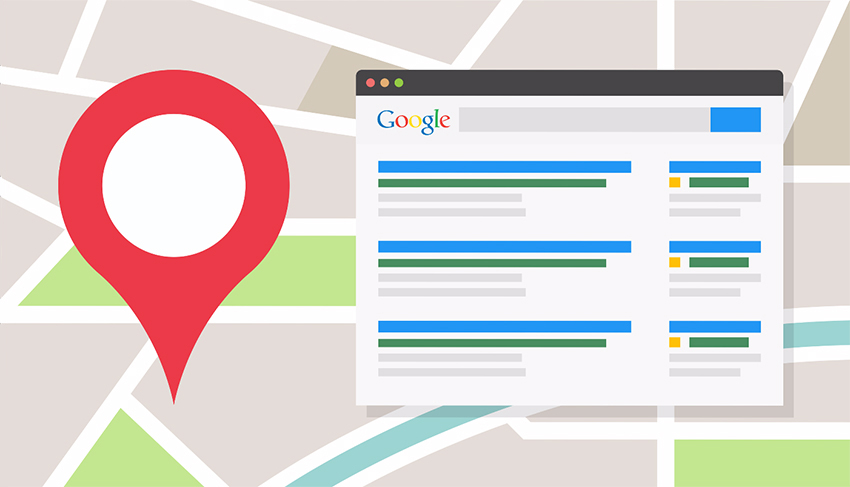In the ever-evolving landscape of digital marketing, search engine optimization (SEO) has become a cornerstone for businesses aiming to enhance their online visibility. Among the various SEO strategies, two concepts that often garner attention are Local SEO and Hyperlocal SEO. While they may seem similar, there are crucial differences between the two that can significantly impact a business’s online presence and success. In this comprehensive guide, we delve into the nuances of Local SEO and Hyperlocal SEO, exploring their definitions, strategies, and benefits.
Defining Local SEO and Hyperlocal SEO
Local SEO: Local SEO focuses on optimizing a website to appear in search results for local queries, typically including a location-based element. Its primary goal is to increase visibility for businesses targeting local customers. For instance, when users search for “best coffee shops near me” or “plumbers in Jaipur,” Local SEO ensures that relevant businesses within the vicinity show up prominently in search engine results pages (SERPs).
Hyperlocal SEO: Hyperlocal SEO takes the localization aspect a step further by targeting an even narrower geographic area, often focusing on specific neighborhoods, streets, or even individual buildings. It aims to connect businesses with customers within an extremely localized vicinity. Hyperlocal SEO strategies aim to capitalize on proximity-based searches, where users seek goods or services available within immediate reach, such as “coffee shops near Central Park” or “Italian restaurants near Times Square.”
Key Differences Between Local SEO and Hyperlocal SEO
- Scope of Targeting:
- Local SEO targets a broader geographic area, such as cities or regions.
- Hyperlocal SEO narrows down the focus to micro-locations within a city or neighborhood.
- Keyword Specificity:
- Local SEO often relies on general location-based keywords like city names or regions.
- Hyperlocal SEO incorporates highly specific keywords that reflect extremely localized searches, including street names, landmarks, or neighborhood identifiers.
- Competition Levels:
- Local SEO competition can be intense, especially in densely populated areas with numerous businesses vying for visibility.
- Hyperlocal SEO competition is comparatively lower, as it targets a niche audience within a limited geographical radius, reducing the number of direct competitors.
- Target Audience Reach:
- Local SEO caters to a broader audience within a designated area, attracting customers from various parts of the city or region.
- Hyperlocal SEO targets an audience with immediate proximity to the business location, appealing to individuals seeking nearby options for convenience or urgency.
Strategies for Local SEO and Hyperlocal SEO
Local SEO Strategies:
- Optimized Google My Business (GMB) Profile: Claim and optimize your GMB listing with accurate business information, including name, address, phone number (NAP), and business hours.
- Localized Content: Create website content tailored to local interests, events, and news relevant to your target audience.
- Local Citations: Ensure consistent NAP information across online directories, local listings, and citation sources to improve local search rankings.
- Customer Reviews: Encourage satisfied customers to leave positive reviews on platforms like Google, Yelp, or Facebook, enhancing credibility and visibility.
- On-Page Optimization: Incorporate local keywords naturally into meta titles, descriptions, headings, and content to signal relevance to search engines.
Hyperlocal SEO Strategies:
- Geotargeted Keywords: Use hyper-specific keywords that reflect the immediate vicinity of your business, including nearby landmarks, streets, or neighborhoods.
- Localized Landing Pages: Create landing pages optimized for hyperlocal searches, addressing specific needs or interests of nearby residents.
- Local Events and Sponsorships: Participate in or sponsor local events, charities, or community initiatives to establish a strong presence within the neighborhood.
- Hyperlocal Backlinks: Build backlinks from local websites, blogs, or community forums to enhance authority and relevance for hyperlocal searches.
- Mobile Optimization: Prioritize mobile optimization, as hyperlocal searches often occur on mobile devices by users seeking nearby businesses while on the go.
Benefits of Local SEO and Hyperlocal SEO
Local SEO Benefits:
- Increased Visibility: Enhance visibility among local customers searching for products or services within your area.
- Improved Foot Traffic: Drive foot traffic to physical storefronts by appearing prominently in local search results.
- Enhanced Credibility: A well-optimized GMB profile with positive reviews instills trust and credibility among potential customers.
- Targeted Advertising: Reach specific demographics and geographic locations with targeted local advertising campaigns.
- Competitive Edge: Outrank competitors in local search results, capturing a larger share of local market demand.
Hyperlocal SEO Benefits:
- Laser-Focused Targeting: Reach customers with high intent within immediate proximity to your business location.
- Increased Conversions: Hyperlocal searches often indicate strong purchase intent, leading to higher conversion rates.
- Reduced Competition: Enjoy lower competition levels compared to broader local SEO, making it easier to rank for hyperlocal keywords.
- Enhanced Customer Engagement: Establish a deeper connection with the local community through hyperlocal content and engagement.
- Improved ROI: Targeting highly relevant, nearby customers translates to a higher return on investment (ROI) for hyperlocal SEO efforts.
Conclusion
In the realm of digital marketing, Local SEO and Hyperlocal SEO emerge as indispensable strategies for businesses seeking to thrive in today’s competitive landscape. While both aim to improve online visibility and attract local customers, their approaches and focus areas differ significantly. By understanding the nuances between Local SEO and Hyperlocal SEO and implementing tailored strategies accordingly, businesses can effectively reach and engage with their target audience, driving tangible results and sustainable growth in their local markets.

